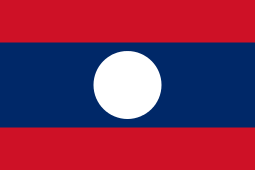People's Republic

"People's Republic" is a title used by certain republican states. Initially associated with populism (people's movements: Völkisch movement, Narodnik, others), it eventually became associated with countries adhering to communism or socialism, after the creation of the Soviet Union and China. However, the term is not unique to communist states. Many countries adopted the title given its rather generic nature, like Bangladesh and Algeria, which were founded as liberal republics after popular wars of respective independence.
Marxist–Leninist People's Republics
The Marxist–Leninist concept of "people's democracy" which developed after World War II allowed in theory for a multi-class, multi-party democracy on the pathway to socialism. Countries which had reached this intermediate stage were called "people's republics".[1] The motivation for using the term "people's republic" lies in the claim that Marxist–Leninists govern in accordance with the interests of the vast majority of the people, and, as such, a Marxist–Leninist republic is a people's republic. Many of these countries also called themselves socialist states in their constitutions; Albania, for instance, used both terms, "socialist" and "people's", in its official name from 1976 to 1991. In the West, countries governed by Marxist–Leninists are referred to as "Communist states", though they never actually used this name for themselves. In the 1990s, many of the People's Republics of Eastern Europe (Poland, Hungary, and Bulgaria) and Mongolia dropped the term and became known simply as "Republics" as they adopted liberal democratic systems of government — the term "People's Republic" being associated with the former Communist governments.
The current nominally communist or socialist states that include the words People's Republic in their full names:
 People's Republic of China (founded 1949)
People's Republic of China (founded 1949) Democratic People's Republic of Korea (Founded 1948)
Democratic People's Republic of Korea (Founded 1948) Lao People's Democratic Republic (founded 1975)
Lao People's Democratic Republic (founded 1975)
Historical examples include:
.svg.png) People's Republic of Albania (1946–1976) and Socialist People's Republic of Albania (1976–1992)
People's Republic of Albania (1946–1976) and Socialist People's Republic of Albania (1976–1992) People's Republic of Angola (1975–1992)
People's Republic of Angola (1975–1992).svg.png) People's Republic of Benin (1975–1990)
People's Republic of Benin (1975–1990).svg.png) People's Republic of Bulgaria (1946–1990)
People's Republic of Bulgaria (1946–1990) People's Republic of the Congo (1969–1992)
People's Republic of the Congo (1969–1992) Czechoslovak Republic (1948–1960)
Czechoslovak Republic (1948–1960) Democratic People's Republic of Korea (1948–1992, see below)
Democratic People's Republic of Korea (1948–1992, see below).svg.png) People's Democratic Republic of Ethiopia (1987–1991)
People's Democratic Republic of Ethiopia (1987–1991) Hungarian People's Republic (1949–1989)
Hungarian People's Republic (1949–1989) People's Republic of Kampuchea (1979–1989)
People's Republic of Kampuchea (1979–1989).svg.png) Mongolian People's Republic (1924–1992)
Mongolian People's Republic (1924–1992).svg.png) People's Republic of Mozambique (1975–1990)
People's Republic of Mozambique (1975–1990) Polish People's Republic (1952–1989)
Polish People's Republic (1952–1989).svg.png) Romanian People's Republic (1947–1965)
Romanian People's Republic (1947–1965) Tuvan People's Republic (1921–1944)
Tuvan People's Republic (1921–1944) People's Democratic Republic of Yemen (1967–1990)
People's Democratic Republic of Yemen (1967–1990) Federal People's Republic of Yugoslavia (1945–1963)
Federal People's Republic of Yugoslavia (1945–1963) Khorezm People's Soviet Republic (1920-1925)
Khorezm People's Soviet Republic (1920-1925) Bukharan People's Soviet Republic (1920-1925)
Bukharan People's Soviet Republic (1920-1925) Chinese People's Soviet Republic (1931-1937)
Chinese People's Soviet Republic (1931-1937)
Other titles commonly used by Marxist–Leninist and socialist states are Democratic Republic (e.g. the German Democratic Republic or the Democratic Federal Yugoslavia between 1943 and 1946), and Socialist Republic e.g. (the Socialist Republic of Vietnam) and (the Democratic Socialist Republic of Sri Lanka).
Non-Marxist–Leninist People's Republics
Founded in socialist ideals, though not necessarily communist:
Current
 People's Democratic Republic of Algeria (Founded 1962)
People's Democratic Republic of Algeria (Founded 1962) People's Republic of Bangladesh (Founded 1971)
People's Republic of Bangladesh (Founded 1971)
- Unrecognized
The following separatist movements have declared People's Republics, but have not received diplomatic recognition from the international community:
 Donetsk People's Republic (Declared 2014)
Donetsk People's Republic (Declared 2014).svg.png) Luhansk People's Republic (Declared 2014)
Luhansk People's Republic (Declared 2014)
Historical
-
.svg.png) Great Socialist People's Libyan Arab Jamahiriya (1977–2011)
Great Socialist People's Libyan Arab Jamahiriya (1977–2011) -
 Ukrainian People's Republic (1917–1921)
Ukrainian People's Republic (1917–1921) -
 West Ukrainian People's Republic (1918–1919, joined the Ukrainian People's Republic)
West Ukrainian People's Republic (1918–1919, joined the Ukrainian People's Republic) -
.svg.png) Belarusian People's Republic (1918–1919, unrecognized)
Belarusian People's Republic (1918–1919, unrecognized) -
 Crimean People's Republic (1917–1918)
Crimean People's Republic (1917–1918) -
.svg.png) Hungarian People's Republic (1918–1919)
Hungarian People's Republic (1918–1919) -
.svg.png) People's Republic of Korea (1945–1946)
People's Republic of Korea (1945–1946) -
 People's Republic of Zanzibar (1963-1964)
People's Republic of Zanzibar (1963-1964)
Other uses
The term People's Republic is sometimes used by critics and satirists to describe areas perceived to be dominated by left-wing politics. Some examples are "The People's Republic of New Jersey",[2] the "People’s Republic of California",[3] the "People's Republic of Dublin South-Central",[4] the "People's Republic of South Yorkshire", "The People's Republic of Boulder",[5] and the "People's Republic of Madison".[6]
See also
- Democratic republic
- Islamic republic
- List of republics
- List of socialist states
- Soviet republic (system of government)
References
| Look up people's republic in Wiktionary, the free dictionary. |
- ↑ White, Stephen (2002). Communism and Its Collapse. Routledge. p. 13. ISBN 9781134694235.
- ↑ Welcome to the People's Republic of New Jersey, Alan Caruba, 28 June 2004, enterstageright.com
- ↑ Roger Hedgecock (14 October 2011). "Dispatch From the People’s Republic of California". Human Events. Townhall Media. Retrieved 2 June 2016.
Michael Levi (4 December 2012). "The People's Republic of California". Foreign Policy. Retrieved 2 June 2016. - ↑ http://electionsireland.org/result.cfm?election=2011&cons=103
- ↑ http://www.colorado.com/articles/go-local-boulder
- ↑ Polarisation in the People's Republic of Madison (sic) The Economist. June 5, 2012. Accessed April 19, 2014